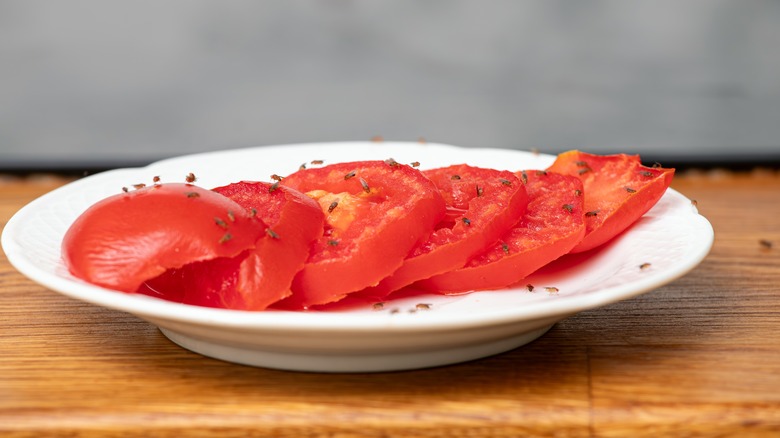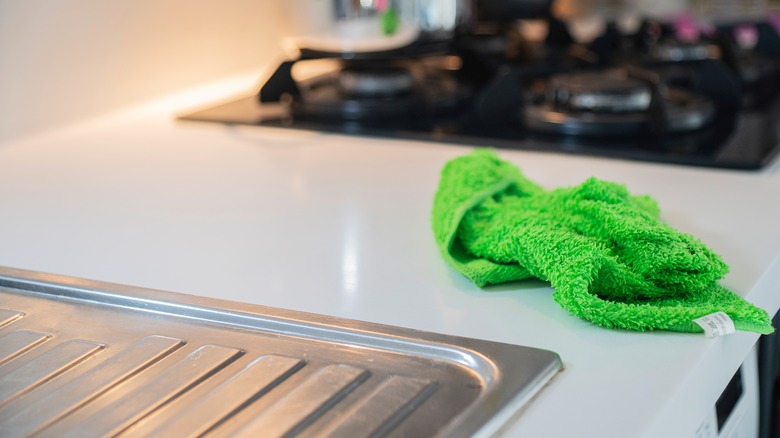Three Sneaky Things That Are Attracting Fruit Flies To Your Home
Fruit flies, or vinegar flies, are never a pleasant sight in your home, and these unwelcome guests can quickly multiply. While they can live year-round, they're most active in the summer to fall. As their name implies, fruit flies are attracted to fruit, especially if ripe or rotting. However, if you see them in your home despite the absence of ripe or decaying fruit, there are other sneaky reasons these pests are infiltrating your home. They don't just love the kitchen, however; you might also see fruit flies buzzing in your bathroom. If your kitchen is unkempt or dirty, this can be a prime hotspot for the insects, as can wet or damp rags, and even unrinsed fruit.
You might be unaware of these common fruit fly attractants, so if you spot the pests in your home, you should look for these potential infestation sources. These insects aren't just a nuisance; they are also potential carriers of illnesses such as e.coli, Samonella, and Listeria. You may unknowingly bring in fruit flies on fruit and vegetables from the store, so always wash and dry your produce carefully. If you still have vinegar flies after rinsing your food, it's possible they are breeding in a less obvious spot in your home.
Where do fruit flies live?
Fruit flies lay their eggs inside the surface of fruits and vegetables, but they will easily make themselves at home in other areas. In addition to rotting or ripe fruit, they flock toward moist environments such as drains and garbage disposals. Wet or damp kitchen rags are an attractive home to fruit flies, as are mopheads, compost heaps, and even trash cans. According to the University of Kentucky Department of Entomology, fruit flies only require "a moist film of fermenting material" to develop. Once they find a spot to lay their eggs, they lay batches of up to 500 eggs a cycle.
With the fruit fly lifespan lasting 40 to 50 days in suitable temperatures, it doesn't take long for an infestation to develop in your home, especially since a female can lay multiple batches of eggs during her lifetime. They thrive in warmer temperatures, but temperatures under 60 degrees Fahrenheit affect their lifespan. However, they can still survive in a cooler environment. You can decrease the chances of a fruit fly infestation with a few simple tips.
How to avoid attracting fruit flies
While washing your fruit is important, you should regularly clean your kitchen, wipe up spills immediately, and routinely empty the garbage. Wring out all rags after use, and take care of any remaining food residue in the sink or on the counter. Avoid leaving any open cans or bottles of sugary drinks or even beer on the counter. Remember, it only takes a small amount of material for the fruit flies to make a home, so strive for a clean environment as much as possible.
It's not uncommon for fruit flies to come in from outside, so repair any large holes in your window screens and add fruit fly repelling plants to the windowsill or garden. As they emerge, new fruit flies are drawn to light, so consider keeping your door or window lights off as well. If they're already buzzing around your home, you can get rid of fruit flies with common household ingredients such as rubbing alcohol and vinegar.


